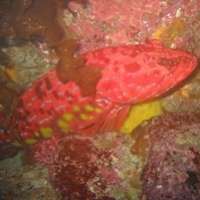Acute lack of skilled marine researchers

Australian marine science suffers from acute skills shortages, according to one of Australia's leading marine scientists.
On World Oceans Day last week, Chair of The University of Western Australia's Oceans Institute Advisory Board, Dr. Ian Poiner, said: "Our oceans need chemists, economists, engineers, geographers, mathematicians, microbiologists, modellers, physicists, statisticians and taxonomists. Unless we do something about this, we will not be able to get the full benefits from our vast marine estate."
The theme for WOD was Youth: the Next Wave for Change.
"As our population increases and coastal and offshore development continues to expand, efficient use and wise management of our marine estate is our greatest challenge and critical to the national interest," Dr. Poiner said.
Australia's marine industries, such as energy, tourism, shipping, and fishing, contributed close to $45 billion per year to Australia. The sector was one of the most rapidly growing areas of the Australian economy.
Yet significant knowledge gaps existed-especially in the Southern Ocean, northern Australia and coastal areas surrounding Australia.
Observing the Southern Ocean was critical for understanding climate, Dr. Poiner said. Understanding northern waters would be critical for national energy resources, while researching coastal areas was critical for managing future development.
Dr. Poiner said monitoring "the growing and cumulative pressures on our marine estate" was one of the most essential activities that Australian science could undertake to sustain national resources.
"Our greatest challenge is getting the economic benefits whilst maintaining and conserving our marine ecosystem's health and services," Dr. Poiner said. "Our current knowledge base is poor and inadequate-at best, we have documented only 20 per cent of Australia's biodiversity."
Dr. Poiner is Chair of the Integrated Marine Observing System (IMOS) based at the University of Tasmania. IMOS brings together 10 Australian universities and research agencies working in marine and climate science and funds them to deploy ocean observing equipment.
Winthrop Professor Charitha Pattiaratchi, of UWA's Oceans Institute and School of Environmental Systems Engineering, said his students were using IMOS facilities for their research work.
"I have a PhD student using high-frequency radar systems that measure surface currents up to 200km off shore to understand surface current patterns, particularly with reference to wind, including sea breeze cycles and the influence of wind on generating eddies," Professor Pattiaratchi said.
"Another PhD student is using ocean gliders to understand dense shelf water cascades, called underwater rivers, along the Rottnest Continental shelf where high density water formed at the shoreline due to evaporation and cooling, moves along the seabed. This was discovered for the first time in Australia using the gliders."
Provided by University of Western Australia





















